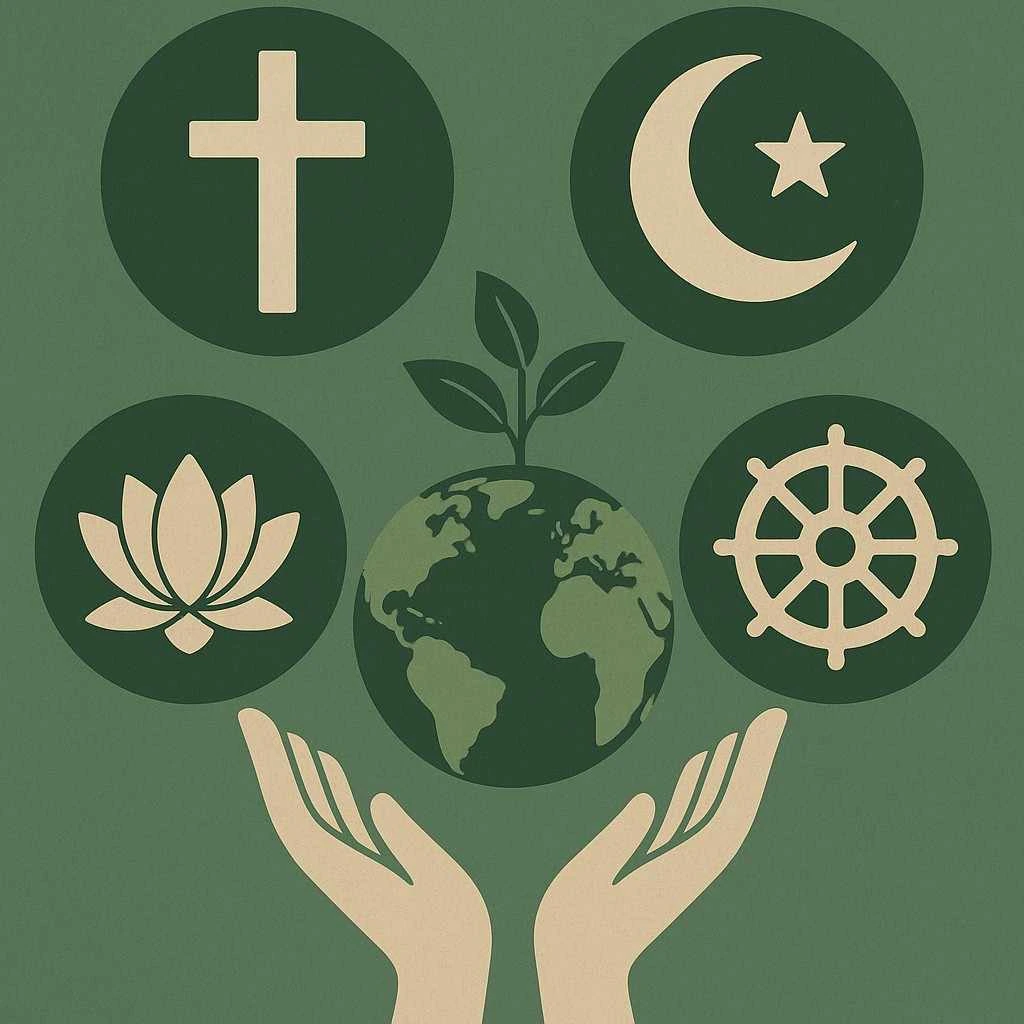Sustainability and Religion — How Faith Supports the Environment
In today’s world, when environmental crises like climate change, pollution, and deforestation threaten the very foundation of life on Earth, the role of religion in promoting sustainability has become more relevant than ever. Across faith traditions, one message is clear — the Earth is sacred, and caring for it is a divine duty. Religion, often seen as a moral compass for humanity, has the power to reshape our relationship with nature by inspiring responsibility, compassion, and mindful living.
The Spiritual Foundation of Environmental Care
Most religions recognize the interconnectedness of all life. In Hinduism, the Earth is revered as Bhoomi Devi, the nurturing mother who sustains every living being. The concept of ahimsa (non-violence) extends beyond humans to include animals, plants, and the environment. In Christianity, the Bible speaks of humans as stewards of creation, entrusted by God to “till and keep” the garden of Earth. Similarly, in Islam, the Qur’an describes humans as khalifah — caretakers of Allah’s creation — responsible for maintaining balance and preventing corruption on Earth.
These teachings underline a universal truth: nature is not a resource to exploit but a sacred trust to preserve. Faith traditions remind us that material progress without spiritual balance leads to destruction. Sustainability, therefore, is not just a scientific or economic issue — it is a moral and spiritual obligation.
Rituals and Traditions that Protect Nature
Religious rituals and festivals have long integrated ecological wisdom. In India, sacred groves near temples have preserved biodiversity for centuries. Many indigenous and tribal traditions consider rivers, mountains, and forests as divine entities. In Buddhism, the act of planting trees or releasing captive animals symbolizes compassion and respect for life.
Sikhism’s principle of Sarbat da Bhala (welfare of all) naturally includes environmental welfare, while Guru Nanak’s teachings celebrate the unity of air, water, and earth as manifestations of the divine. Even in Christianity, practices like fasting and moderation echo sustainability principles by curbing overconsumption. Thus, religious customs have historically encouraged balance — taking only what is needed and giving back to nature.
Faith-Based Environmental Movements
In modern times, several faith-inspired environmental movements have emerged worldwide. The Chipko Movement in India, led by villagers who hugged trees to prevent logging, was deeply influenced by Gandhian spirituality and Hindu values of harmony with nature. The Green Churches Network in Europe promotes eco-friendly practices like energy conservation and sustainable farming among Christian communities. Muslim scholars have issued fatwas urging believers to reduce waste, protect water sources, and avoid harming wildlife.
Pope Francis’s 2015 encyclical Laudato Si’ marked a historic moment in environmental ethics, calling on all faiths and nations to view ecological care as a moral duty. Similarly, Buddhist leaders have initiated global tree-planting drives and mindfulness programs focused on reducing carbon footprints. These actions show how faith can transform concern into commitment.
Moral and Emotional Power of Religion
One of the strongest contributions religion makes to sustainability is the emotional and moral framework it offers. Science can explain the causes of environmental degradation, but faith motivates people to act with love and responsibility. Religious communities can reach millions with messages of stewardship and compassion that go beyond intellectual awareness. When temples, mosques, churches, and gurdwaras adopt sustainable practices — solar energy, recycling, plastic-free festivals — they not only reduce waste but also inspire entire communities to follow.
Moreover, religion connects ecological care with hope. Many people feel powerless in the face of global environmental problems, but spiritual teachings remind them that every small act — planting a tree, conserving water, or living simply — has cosmic value. This sense of purpose keeps the spirit of sustainability alive.
A Shared Future of Faith and Ecology
In a time of growing environmental despair, religion can be a unifying force that bridges divides. All major faiths share core values — gratitude, humility, simplicity, and service — which naturally align with sustainable living. The more these values are revived and practiced, the closer humanity moves toward healing the planet.
True sustainability demands not only technological innovation but also a spiritual awakening — a return to reverence for life. When faith and environmental consciousness work together, they can guide societies toward balance and renewal.
As ancient wisdom meets modern responsibility, religion can help transform sustainability from a policy goal into a way of life — one rooted in compassion, mindfulness, and divine respect for all creation.
In essence, caring for the Earth is not just an environmental act — it is an act of faith.
~Religion World Bureau










